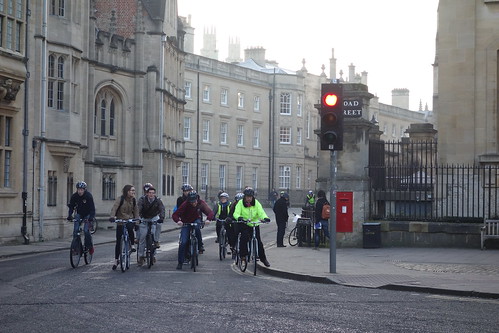Welcome to Word Buzz Wednesday, in which we round up our favorite buzzworthy words of the week. The latest: a fake generation; a rich one; and how not to be like a fish on a bicycle.
becomer
“The New York Times reported that the Disney-owned cable channel will undergo a radical rebrand in January, with a new name (Freeform) and a new target audience (‘becomers,’ or the generation below their former target, millennials).”
Vinnie Mancuso, “Oh, Golly! ABC Family to Rebrand as ‘Freeform,’ Will Stop ‘Chasing Millennials,’” Observer, October 6, 2015
The term becomers was coined by ABC Family execs to refer to “youths and young adults in the 12-34 age range,” which as the Observer points out, “is basically still millennials” (emphasis theirs). Millennials are generally defined as people born between 1980 and 1995. ABC Family, now Freeform, does note that becomers are not so much a generation “as a life stage.”
dowser
“As a dowser, she uses tools as simple as a stick to determine where to place a well.”
Lois Parshley, “Climate of doubt,” Aeon, October 5, 2015
A dowser is someone who uses a divining rod to try and find underground water or minerals. The origin of the word dowse, which also means to plunge into water, is unknown. The Online Etymology Dictionary says it’s from the 1690s and is a “south England dialect word, of uncertain origin.”
fuerdai
“As portrayed in the local press, fuerdai are to China what Paris Hilton was to the U.S. a decade ago, only less tasteful.”
Christopher Beam, “Children of the Yuan Percent: Everyone Hates China’s Rich Kids,” Bloomberg, September 30, 2015
Fuerdai translates from Chinese as “second-generation rich,” and are viewed as pampered and spoiled, in stark contrast with the first generation of Chinese entrepreneurs, who grew up during the Cultural Revolution. “[Fuerdai] know only how to show off their wealth,” claims an article from a Chinese government body, “but don’t know how to create wealth.”
Some fuerdai are trying to rebrand their image, says Bloomberg, having dropped fu, “wealthy,”and calling themselves chuangerdai, “second-generation entrepreneurs,” or simply erdai, “second generation.”
shoaling
“Shoaling is the byproduct of the increasing popularity of cycling, an ostensible net positive that longtime riders nevertheless seem to secretly resent.”
Lauren Evans, “What Is Shoaling And Should Cyclists Stop Doing It?” Gothamist, October 6, 2015
Shoaling is the act of swerving around other cyclists at a red light “to get to the head of the pack,” says Gothamist, rather than waiting behind them, with the idea that one is faster than the other cyclists and will need to pass them eventually anyway.
This cycling term is based on shoal meaning a school of fish, says NPR. The word shoal might come from the Old English scolu, “band, troop, crowd of fish,” or the Middle Dutch schole, “multitude, flock.”
YURP
“Katrina had a gentrifying effect on a lot of the city. First came the YURPS, or Young Urban Rebuilding Professionals.”
Sean Cole, “Lower 9 + 10,” This American Life, August 28, 2015
YURP plays off yuppie, “young urban professional,” which originated in the early 1980s, and beat out in popularity similar terms such as yumpie, “young upward-mobile professional,” and yap, “young aspiring professional.”
